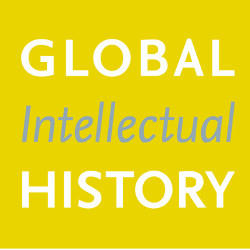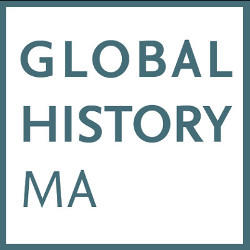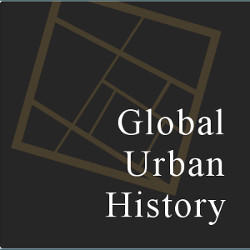PD Dr. Grzegorz Rossoliński-Liebe

Friedrich-Meinecke-Institut
Privatdozent
Holocaust Studies, East European History, European History, Jewish History, History of Violence
Neuere und Neueste Geschichte
Department of History and Cultural Studies
Friedrich-Meinecke-Institut
Sprechstunde
By appointment
Grzegorz Rossoliński-Liebe is Alfred Landecker Lecturer. He studied at the European University Viadrina, holds a PhD from the University of Hamburg and a Habilitation from the Freie Universität Berlin. He wrote the first scholarly biography of the Ukrainian politician Stepan Bandera and a monograph about Polish mayors in the General Government. He also published five volumes, two special issues and numerous articles about the Holocaust in East Central Europe, transnational fascism in Western and Eastern Europe, the history of multiethnic cities, and various aspects of European and global history.
He was a fellow of the Harry Frank Guggenheim Foundation, the Fondation pour la Mémoire de la Shoah, Polin Museum of the History of Polish Jews, the German Historical Institute Warsaw, the Gerda Henkel Stiftung, the United States Holocaust Memorial Museum, the Fritz Thyssen Stiftung, the Jewish Claims Conference, the Zentrum für Holocaust-Studien, the Yad Vashem International Institute for Holocaust Research, the Polish Institute of Advanced Studies, and a Honorary Research Fellow of the Alexander von Humboldt Stiftung at the Polish Center for Holocaust Research.
Summer semester 2025
Holocaust in Berlin and Warsaw
Zwischen Antisemitismus und Akkulturation. Jüdisches Leben in West- und Osteuropa zwischen 1860 und 1922
-------------------------------------------------------------------------
Winter semester 2024/2025
Holocaust in West- und Osteuropa
Global History of Violence and Genocid
-------------------------------------------------------------------------
Winter semester 2023/2024
Fascism as a Transnational Movement
Global History of Violence and Genocid
-------------------------------------------------------------------------
Winter semester 2022/2023
Holocaust in Berlin und Warschau
-------------------------------------------------------------------------
Winter semester 2021/2022
Holocaust in Berlin and Warsaw
Global History of Violence and Genocide
-------------------------------------------------------------------------
Sommer semester 2021
Multiethnische Städte in Ostmitteleuropa
Holocaust in West- und Osteuropa
-------------------------------------------------------------------------
Sommer semester 2020
-------------------------------------------------------------------------
Winter semester 2019/2020
Theorie, Methodik und Geschichte der Geschichtswissenschaften
-------------------------------------------------------------------------
Winter semester 2019/2020
A Global History of Violence and Genocide
-------------------------------------------------------------------------
Winter semester 2017/2018
Holocaust in Western and Eastern Europe
-------------------------------------------------------------------------
Sommer semester 2017
Holocaust in West- und Osteuropa
-------------------------------------------------------------------------
Sommer semester 2016
Transnationaler Faschismus in West- und Osteuropa
The research interests of Grzegorz Rossoliński-Liebe include the history of the Holocaust, genocides and transnational violence, modern European and East Central European history (especially Jewish, Polish, Ukrainian, and Russian history), transnational fascism, antisemitism, the politics of memory, multiethnic cities and urban history, Soviet history, and contemporary history.
In his current research projects, he investigates the city administrations of Warsaw, Łódź, and Cracow, and the German-Polish collaboration, during World War II.
Monographs
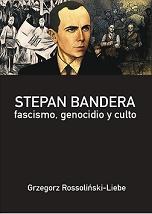
- Stepan Bandera. Fascismo, genocidio y culto, Barcelona: Dirección Única Editorial, 2025
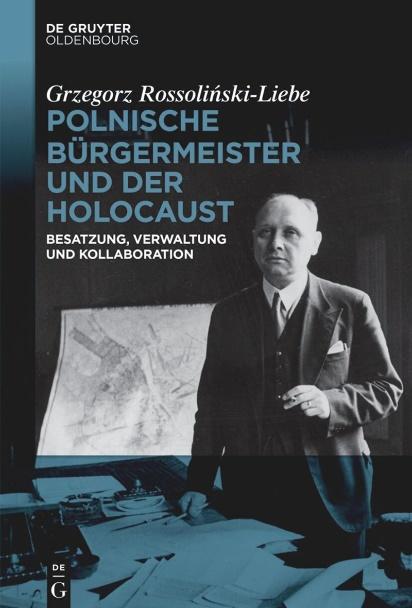
-
Polnische Bürgermeister und der Holocaust. Besatzung, Verwaltung und Kollaboration, Berlin: De Gruyter, 2024
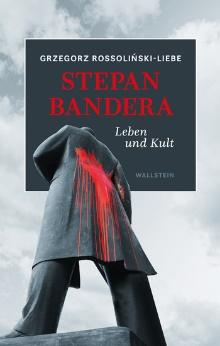
-
Stepan Bandera. Leben und Kult, Göttingen: Wallstein, 2024.
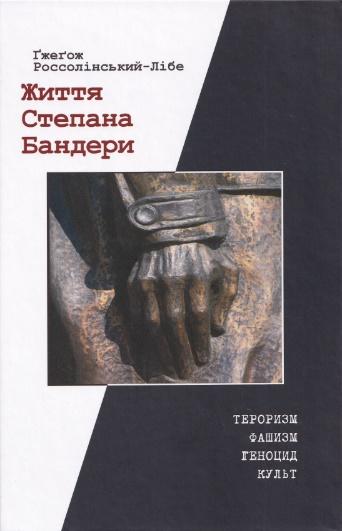
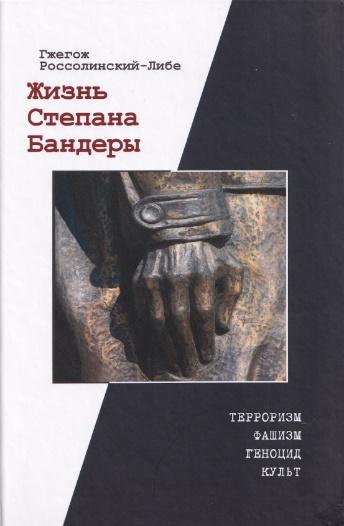
-
Життя Степана Бандери, Київ: Видавництво «Антропос-логос-фільм», 2021.
-
Жизнь Степана Бандеры, Киев: Издательство «Антропос-логос-фильм», 2021.
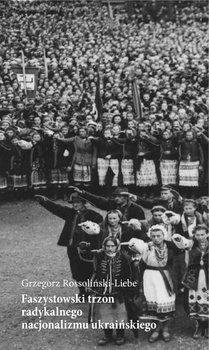
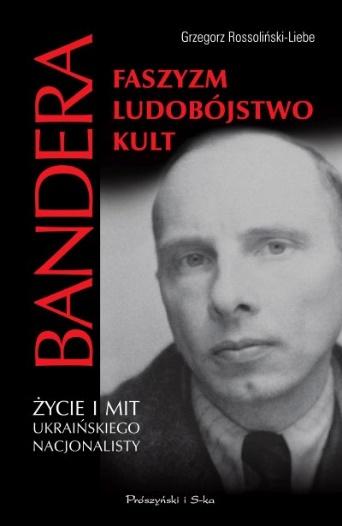
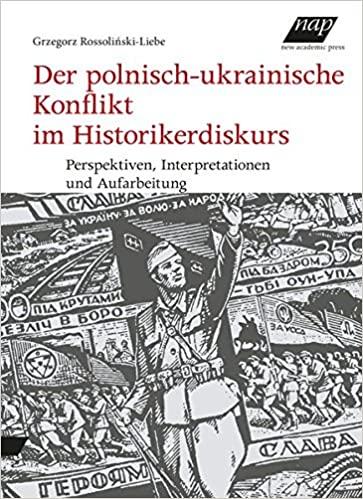
-
The Fascist Kernel of Ukrainian Genocidal Nationalism. The Carl Beck Papers in Russian and East European Studies, Pittsburgh: University of Pittsburgh Press 2015.
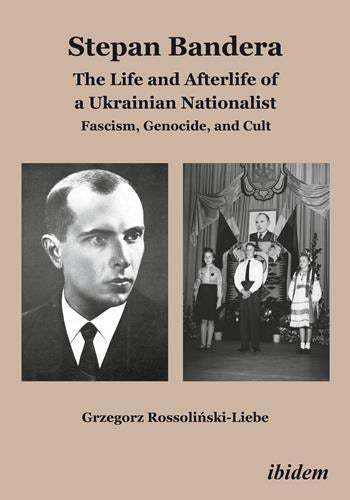
-
reviewed in: Holocaust and Genocide Studies, 34, 2 (2020), 317-319; H-Soz-u-Kult 13.04.2015; Yad Vashem Studies 43, 2 (2015), 191-207; Religion & Gesellschaft in Ost und West 43 (2015) 8, S. 30; Israel Journal of Foreign Affairs 9 (2015) 3, 539-541; Journal on Ethnopolitics and Minority Issues in Europe 15 (2016) 1, 117-127; Kritika: Explorations in Russian and Eurasian History 17 (2016) 3, 647-663; N RC Hamdelblad Boeken, 12.6.2015, 13; Slavic Review 75 (2016) 2, 459-463; Форум новейшей восточноевропейской истории и культуры - Русское издание 1 (2015), 118-140, 276-285; Pamięć i Sprawiedliwość 2, 26 (2015), 211-229; De-Mythologizing Bandera: Towards a Scholarly History of the Ukrainian Nationalist Movement, in: Journal of Soviet and Post-Soviet Politics and Society 1, 2 (2015), 411-458; Jahrbücher für Geschichte Osteuropas 65, 1 (2017), 158-160; European History Quarterly 46, 1 (2016), 174-176; European History Quarterly 46, 1 (2016), 266-263; Zagłada Żydów. Studia i Materiały 14 (2018); Connexe. Les espaces postcommunistes en question(s) 3 (2018), 153-156; sehepunkte 16 (2016).
Volumes and Edition
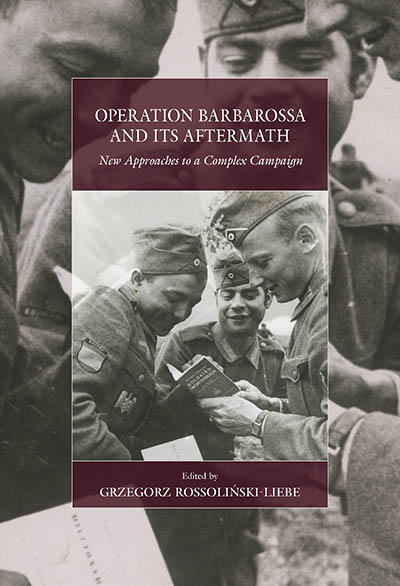
-
Operation Barbarossa and its Aftermath. New Approaches to a Complex Campaign, New York/Oxford: Berghahn, 2024.
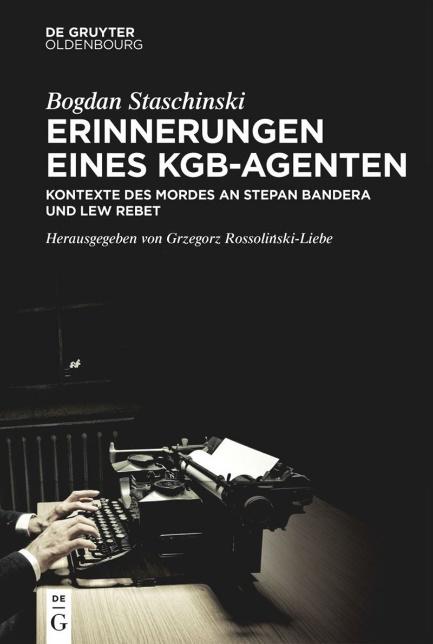
- Bogdan Staschinski, Erinnerungen eines KGB-Agenten. Kontexte des Mordes an Stepan Bandera und Lew Rebet, Berlin: De Gruyter, 2024.
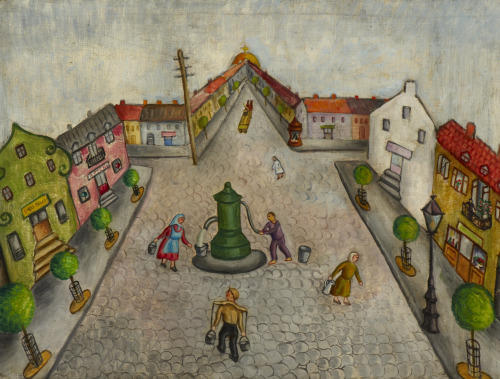
-
with Francesco Di Palma, special issue of QUEST. Issues in Contemporary Jewish History 2021 zum Thema „Jewish Minorities between Nation-Building and Emigration in late Nineteenth and early Twentieth Century East Central Europe“.
-
special section in East European Politics and Societies, Conceptualizations of the Holocaust in Germany, Poland, Lithuania, Belarus, and Ukraine: Historical Research, Public Debates, and Methodological Disputes, 34, 1 (2020).
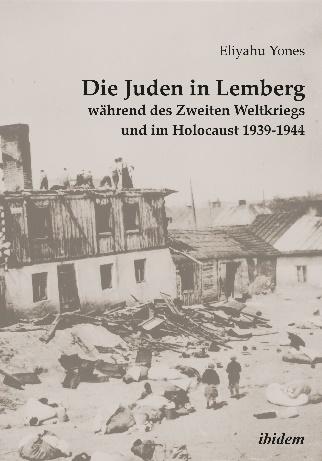
-
with Susanne Heim, Eliyahu Yones, Die Juden in Lemberg während des Zweiten Weltkriegs und im Holocaust 1939–1944, Ibidem: Stuttgart, 2018.
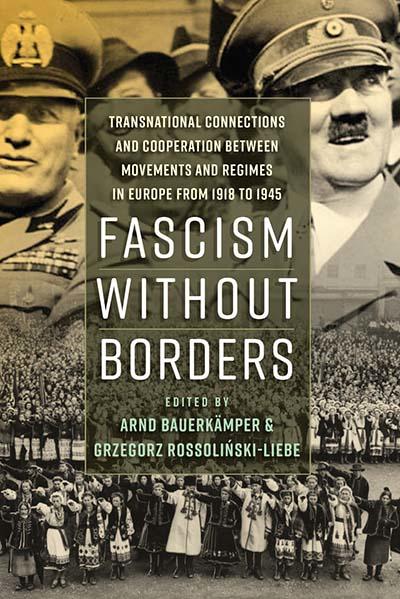
-
with Arnd Bauerkämper, Fascism without Borders. Transnational Connections and Cooperation between Movements and Regimes in Europe 1918 to 1945, Oxford: Berghahn 2017.
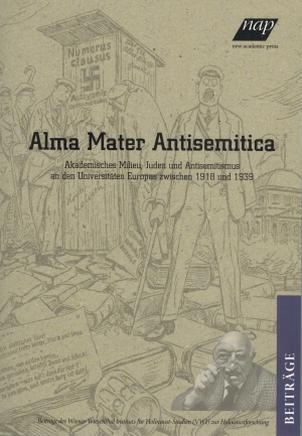
-
with Regina Fritz und Jana Starek, Alma mater antisemitica. Akademisches Milieu, Juden und Antisemitismus an den Universitäten Europas zwischen 1918 und 1939, Wien: New Academic Press 2016.
-
with Lutz Henke und Philipp Ther, Eine neue Gesellschaft in einer alten Stadt. Erinnerung und Geschichtspolitik in Lemberg anhand der Oral History/Нове суспіьство в давиьному місті. Память та історична політнка засобами oral history. Wrocław: Atut 2007.
Articles
-
Aus den Aufzeichnungen eines Attentäters. Der KGB-Agent Bogdan Staschinski und die Morde an Lew Rebet und Stepan Bandera in München, in: Vierteljahrshefte für Zeitgeschichte 72, 2 (2024): 363-423.
-
Bandera, Genocide, and Justice: Was Stepan Bandera Responsible for Crimes Committed by the OUN and the UPA?, in: Yad Vashem Studies 51, 1 (2023): 89-117.
-
Hebrew translation: בַּנדֵרָה, רצח עַם וצדק האם סטֵפַּן בַּנדֵרָה אחראי לפשעי ארגון הלאומנים האוקראינים וצבא המתקוממים האוקראינים, in: Yad Vashem Studies 51, 1 (2023): 77-101.
-
Stepan Banderas Verantwortung für die Verbrechen ukrainischer Nationalisten, in: Jahrbuch für Antisemitismusforschung 31 (2022): 283-318.
-
Les maires polonais face à la Shoah dans le Gouvernement general, in: Revue d’Histoire de la Shoah 216 (2022): 99-113.
-
Ukrainian Nationalists and the Jews during the Holocaust in the Eyes of Anticommunist, Soviet, German, Jewish, Polish, and Ukrainian Historians: Transnational History and National Interpretations, in: Moreshet 19 (2022): 341-371.
-
Hebrew translation: הלאומנים האוקראינים והיהודים בתקופת השואה בעיניהם של היסטוריונים אנטי־קומוניסטים, סובייטים, גרמנים, יהודים, פולנים ואוקראינים: היסטוריה חוצה לאומים ופרשנויות לאומיות, in: Moreshet 19 (2022): 337-363.
-
Polnische Bürgermeister und der Holocaust im Generalgouvernement. Besatzung, Kollaboration und Handlungsmöglichkeiten in: Einsicht. Bulletin des Fritz Bauer Instituts, 2021.
-
Introduction: Conceptualizations of the Holocaust in Germany, Poland, Lithuania, Belarus, and Ukraine: Historical Research, Public Debates, and Methodological Disputes, in: East European Politics and Societies 34, 1 (2020): 129-142.
-
Survivor Testimonies and the Coming to Terms with the Holocaust in Volhynia and
-
Eastern Galicia: The Case of the Ukrainian Nationalists, in: East European Politics and Societies 34, 1 (2020): 221-240.
-
Bandera, masowa przemoc i odpowiedzialność. Czy Stepan Bandera był odpowiedzialny za zbrodnie popełnione przez OUN i UPA?, in: Zagłada Żydów. Studia i Materiały 15 (2020): 219-250.
-
Kollaboration im Zweiten Weltkrieg und im Holocaust. Ein analytisches Konzept, in: Docupedia-Zeitgeschichte, 19.07.2019, http://docupedia.de/zg/Rossolinski-Liebe_kollaboration_v1_de_2019
-
Der europäische Faschismus und der ukrainische Nationalismus. Verflechtungen, Annäherungen und Wechselbeziehungen, in: Zeitschrift für Geschichtswissenschaft 65, 2 (2017): 153-169.
-
Verflochtene Geschichten. Stepan Bandera, der ukrainische Nationalismus und der transnationale Faschismus, in: Aus Politik und Zeitgeschichte, (Anti-)Faschismus 67, 42-43 (2017): 12-22.
-
Ukraińska policja, nacjonalizm i zagłada Żydów w Galicji Wschodniej i na Wołyniu, in: Zagłada Żydów. Studia i Materiały 13 (2017): 57-79.
-
Holocaust Amnesia: The Ukrainian Diaspora and the Genocide of the Jews, in: German Yearbook of Contemporary History 1 (2016): 107-144.
-
Remembering and Forgetting the Past. Jewish and Ukrainian Memories of the Holocaust in western Ukraine, in: Yad Vashem Studies 43, 2 (2015): 13-50.
-
Hebrew translation: לזכור ולשכוח את העבר אופני זיכרון של השואה במערב אוקראינה בקרב יהודים ואוקראינים, in: Yad Vashem Studies 43, 2 (2015): 11-42.
-
Der Genozid an den Juden in der Erinnerung der ukrainischen Diaspora, in: Vierteljahrshefte für Zeitgeschichte 62, 3 (2014): 397–431.
-
English translation: Holocaust Amnesia: The Ukrainian Diaspora and the Genocide of the Jews, in: German Yearbook of Contemporary History 1 (2016): 107-143.
-
Polish translation: Luka w pamięci o Holokauście Diaspora ukraińska i ludobójstwo Żydów, in: OUN, UPA i Zagłada Żydów, edited by Andrzej A. Ziemba, Kraków: Księgarnia Akadamicka, 2017, 815-846.
-
Der Verlauf und die Täter des Lemberger Pogroms vom Sommer 1941. Zum aktuellen Stand der Forschung, in: Jahrbuch für Antisemitismusforschung 22 (2013): 207-243.
-
Polish translation: Przebieg i sprawcy pogromu we Lwowie latem 1941 roku. Aktualny stań badań, in: OUN, UPA i Zagłada Żydów, edited by Andrzej A. Ziemba, Kraków: Księgarnia Akadamicka, 2017, 313-341.
-
Debating, Obfuscating and Disciplining the Holocaust: Post-Soviet Historical Discourses on the OUN-UPA and other Nationalist Movements, in: East European Jewish Affairs 42, 3 (2012): 199-241.
-
The ‘Ukrainian National Revolution’ of 1941. Discourse and Practice of a Fascist Movement, in: Kritika: Explorations in Russian and Eurasian History 12, 1 (2011): 83-114.
-
Polish translation: ‘Ukraińska Rewolucja Narodowa’ 1941 roku. Teoria i praktyka ruchu faszystowskiego, in: OUN, UPA i Zagłada Żydów, edited by Andrzej A. Ziemba, Kraków: Księgarnia Akadamicka, 2017, 173-201.
-
Russian translation: «Украинская национальная революция» 1941-го года: теория и практика фашистского движения, in: Форум новейшей восточноевропейской истории и культуры (2017): 177-206.
-
Celebrating Fascism and War Criminality in Edmonton. The Political Myth and Cult of Stepan Bandera in Multicultural Canada, in: Kakanien Revisited 12 (2010): 1-16.
-
Polish translation: Świętowanie faszyzmu i zbrodni wojennych w Edmonton. Mit polityczny i kult Stepana Bandery w multikultorowej Kanadzie, in: Pamięć i Sprawiedliwość 20, 2 (2012), 453-478.
-
Der polnisch-ukrainische Historikerdiskurs über den polnisch-ukrainischen Konflikt 1943-1947, in: Jahrbücher für Geschichte Osteuropas Bd. 57, Nr. 1 (2009): S. 54-85.
-
Die Stadt Lemberg in den Schichten ihrer politischen Denkmäler, in: ece-urban (The Online Publications Series of the Center for Urban History of East Central Europe), No. 6, Lviv, Oktober 2009 (Ukrainian translation in ece-urban).
-
Der Raum der Stadt Lemberg in den Schichten seiner politischen Denkmäler, in: Kakanien Revisited, 12 (2009): 1-21.
Articles in Volumes
-
Stepan Bandera und die Krise der ukrainischen, europäischen und globalen Demokratie, in: Michaela Maier / Maria Mesner / Robert Kriechbaumer / Johannes Schönner (Hrsg.) Die Krisen der Demokratie in den 1920er und 1930er Jahren, Böhlau: Vandenhoeck & Ruprecht Verlage, 2023, 13-24.
-
Formen kollektiver Erinnerungen an den Holocaust und den Zweiten Weltkrieg in der Ukraine, in: Sybille Steinacher / Jürgen Zarusky (Hrsg.), Der deutsch-sowjetische Krieg 1941-1945: Geschichte und Erinnerung, Wallstein, 2020, 228-247.
-
Racism and Modern Antisemitism in Habsburg and Russian Ukraine. A Short Overview, in: Raul Cârstocea und Éva Kovács, eds., Modern Antisemitisms in the Peripheries. Europe and its Colonies, 1880-1945. Vienna: New Academic Press, 2019, 133-159.
-
- Inter-Fascist Conflicts in East Central Europe: The Nazis, the “Austrofascists,” the Iron Guard, and the Organization of Ukrainian Nationalists, in: Arnd Bauerkämper, Grzegorz Rossoliński-Liebe, eds., Fascism without Borders: Transnational Connections and Cooperation between Movements and Regimes in Europe from 1918 to 1945, Oxford: Berghahn, 2017, 168-191.
-
Fascism without Borders: Transnational Connections and Cooperation between Movements and Regimes in Europe, 1918–1945, in: Arnd Bauerkämper, Grzegorz Rossoliński-Liebe, eds., Fascism without Borders: Transnational Connections and Cooperation between Movements and Regimes in Europe from 1918 to 1945, Oxford: Berghahn, 2017, 1-38.
-
Die antijüdische Massengewalt ukrainischer Nationalisten in der antikommunistischen, deutschen, jüdischen, polnischen, ukrainischen und sowjetischen Historiografie, in: Kerstin Schoor/Stefanie Schüler-Springorum, eds., Gewalt – Gedächtnis – Erkenntnis. Nationale und transnationale Erinnerungsräume im östlichen Europa, Göttingen: Wallstein, 2016, 206-226.
-
Obraz Stepana Bandery v pols’kii natsional’nii svidomosti, in: Strasti za Banderoiu, eds. Tarik Cyryl Amar, Ihor Balyns’kyi, and Iaroslav Hrytsak, Kyiv: Hrani-T, 2010, 90-105.
-
Umbenennungen in der Ziemia Lubuska nach 1945, in: Terra Transoderana: zwischen Neumark und Ziemia Lubuska, Bernd Vogenbeck, eds., Berlin: Bebra 2008, 59-68.
-
Bandera und Nikifor – zwei Modernen in einer Stadt. Die ‘nationalbürgerliche‘ und die ‘weltbürgerliche‘ Moderne in Lemberg, in: Eine neue Gesellschaft in einer alten Stadt. Lutz Henke, Grzegorz Rossoliński, and Philipp Ther eds. Wrocław: ATUT, 2007, 109-124.
Other Publications
-
Foreword to Nokhem Shtiftm, The Pogroms in Ukraine, 1918–19: Prelude to the Holocaust, translated by Maurice Wolfthal, Cambridge, UK: Open Book Publishers, 2019.
Reviews
-
Heidi Hein Kircher, Lembergs polnischen Charakter sichern. Kommunalpolitik in einer multiethnischen Stadt der Habsburgermonarchie zwischen 186162 und 1914, Stuttgart: Franz Steiner Verlag, 2020, in: Zeitschrift für Ostmitteleuropa-Forschung 70, 3 (2021): 482-4.
-
Nico Wouters, Mayoral Collaboration under Nazi Occupation in Belgium, the Netherlands and France, 1938-46, Basingstoke: Palgrave Macmillan 2016, in: sehepunkte 19, 3 (2019).
-
Olena Petrenko, Petrenko, Olena: Unter Männern. Frauen im ukrainischen nationalistischen Untergrund 1944–1954. Paderborn 2018, in: H-Soz-Kult, 23.07.2019.
-
Omer Bartov, Anatomy of a Genocide: The Life and Death of a Town Called Buczacz, New York: Simon & Schuster, 2018, in: H-Soz-Kult 29.06.2018.
-
Joshua Zimmerman, The Polish Underground and the Jews, 1939–1945. New York: Cambridge University Press, 2015, in: Jahrbücher für Geschichte Osteuropas 65 (2017), 676-680.
-
Daniel Brewing, Im Schatten von Auschwitz. Deutsche Massaker an polnischen Zivilisten 1939–1945 (Darmstadt: Wissenschaftliche Buchgesellschaft, 2016, in: Francia recensio, 2017.
-
Marcin Zaremba: Die große Angst. Polen 1944–1947: Leben im Ausnahmezustand. Paderborn 2016, in: H-Soz-Kult 20.10.2017.
-
Stephan Lehnstaedt, Jochen Böhler, eds., Die Berichte der Einsatzgruppen aus Polen 1939. Vollständige Edition. Berlin: Metropol 2013, in: Editionen in der Kritik
-
Editionswissenschaftliches Rezensionsorgan, Berliner Beiträge zur Editionswissenschaft, herausgegeben von Hans-Gert Roloff, 17 (2017), 114-116.
-
Hans Henning Hahn, Robert Traba, Maciej Górny, Kornelia Kończal (Hrsg.), Deutsch-polnische Erinnerungsorte. Band 2: Geteilt / Gemeinsam, Paderborn, München, Wien [usw.]: Schöningh, 2014, in: Jahrbücher für Geschichte Osteuropas/jgo.e-reviews 6 (2016), 3-5.
-
Laura Jockusch, Gabriel N. Finder, eds., Jewish Honor Courts: Revenge, Retribution, and Reconciliation in Europe and Israel after the Holocaust, Wayne State University Press: Detroit, MI, 2015, in: European History Quarterly 47, 2 (2017), S. 358-359.
-
Kai Struve: Deutsche Herrschaft, ukrainischer Nationalismus, antijüdische Gewalt. Der Sommer 1941 in der Westukraine. Berlin 2015, in: H-Soz-Kult, 05.09.2016.
-
Antony Polonsky: The Jews in Poland and Russia Vol. 1-3, Oxford, Portland, OR: Littman Library of Jewish Civilization, 2010-2012, in: Jahrbücher für Geschichte Osteuropas 64, 2 (2016), 311-315.
-
António Costa Pinto/Aristotle Kallis (Hg.): Rethinking Fascism and Dictatorship in Europe, Basingstoke: Palgrave Macmillan 2014, in sehepunkte 16, 7/8 (2016).
-
Deutsch-Polnische Erinnerungsorte. Bd. 4: Reflexionen. Hrsg. Von Hans Henning Hahn und Robert Traba unter Mitarbeit von Maciej Górny und Kornelia Kończal. Paderborn, München, Wien [usw.]: Schöningh, 2013, in: Jahrbücher für Geschichte Osteuropas/jgo.e-reviews 5, 4 (2015), 43-44.
-
Gerhard Köpernik, Faschisten im KZ. Rumäniens Eiserne Garde und das Dritte Reich. Berlin 2014 , in: H-Soz-Kult, 05.04.2016.
-
Angelika Benz, Handlanger der SS. Die Rolle der Trawniki-Männer im Holocaust, Berlin: Metropol 2015, in sehepunkte 16, 3 (2016).
-
Jeremy Hicks, First Films of the Holocaust. Soviet Cinema and the Genocide of the Jews, 1938-1946 (= Pitt Series in Russian and East European Studies), Pittsburgh, Pa.: University of Pittsburgh Press 2012, in sehepunkte 16, 2 (2016).
-
Anna Wolff-Powęska, Piotr Forecki, eds., Der Holocaust in der polnischen Erinnerungskultur, Frankfurt am Main: Lang, 2012, in: Jahrbücher für Geschichte Osteuropas/jgo.e-reviews 1 (2015), 42-43.
-
Jochen Böhler, Stephan Lehnstaedt, eds., Gewalt und Alltag im besetzten Polen 1939-1945, Osnabrück: fibre, 2012, Jahrbücher für Geschichte Osteuropas/jgo.e-reviews 1 (2015), 25-27.
-
Frank Beer, Wolfgang Benz, Barbara Distel, eds., Nach dem Untergang. Die ersten Zeugnisse der Shoah in Polen 1944-1947. Berichte der Zentralen Jüdischen Historischen Kommission, Berlin: Metropol 2014, in sehepunkte 15, 3 (2015).
-
Thomas Schlemmer, Hans Woller, eds, Der Faschismus in Europa. Wege der Forschung, München: De Gruyter Oldenbourg 2014, in: H-Soz-Kult, 10.03.2015.
-
Kurt Bauer, Hitlers zweiter Putsch. Dollfuß, die Nazis und der 25. Juli 1934. St. Pölten 2014, in: H-Soz-Kult, 11.12.2014
-
Christopher Browning, Remembering Survival. Inside a Nazi Slave-Labor Camp. New York 2010, in: H-Soz-Kult, 16.06.2014.
-
Michael David-Fox, Peter Holquist, Alexander M Martin, eds., The Holocaust in the East. Local Perpetrators and Soviet Responses. Pittsburgh: University of Pittsburgh Press 2014, in: H-Soz-Kult, 17.09.2014.
-
collected review: Witold Mędykowski, W cieniu gigantów. Pogromy 1941 r. w byłej sowieckiej strefie okupacyjnej. Warschau: Instytut Studiów Politycznych Polskiej Akademii Nauk 2012; Simon Geissbühler, Blutiger Juli. Rumäniens Vernichtungskrieg und der vergessene Massenmord an den Juden 1941. Paderborn: Schöningh-Verlag 2013, in: H-Soz-u-Kult, 24.10.2013
-
James Mace Ward, Priest, Politician, Collaborator. Jozef Tiso and the Making of Fascist Slovakia. Ithaca: Cornell University Press 2013, in: H-Soz-u-Kult, 02.10.2013
-
Jenny Alwart, Mit Taras Ševčenko Staat machen. Erinnerungskultur und Geschichtspolitik in der Ukraine vor und nach 1991. Köln: Böhlau, 2012, in: H-Soz-u-Kult, 24.06.2013.
-
Andrea Mammone, Emmanuel Godin und Brian Jenkins, Hrsg., Mapping the Extreme Right in Contemporary Europe: From Local to Transnational. London: Routledge, 2012, in: Book Reviews / Fascism 1 (2012), 158-160.
-
Stefan Troebst, eds., Postdiktatorische Geschichtskulturen im Süden und Osten Europas. Bestandsaufnahmen und Forschungsperspektiven. Göttingen: Wallstein, 2010. 648 S., in Jahrbücher für Geschichte Osteuropas/jgo.e-reviews 3 (2012), 34-35.
-
Anna Holian, Between National Socialism and Soviet Communism: Displaced Persons in Postwar Germany. Ann Arbor: University of Michigan Press, 2011, in: H-Soz-u-Kult, 18.10.2012.
-
Donal O’Sullivan, Dealing with the Devil. Anglo-Soviet Intelligence Cooperation during the Second World War. New York: Lang, 2010, in Jahrbücher für Geschichte Osteuropas / jgo.e-reviews, jgo.e-reviews 2 (2012), 32-33.
-
collected review: Jan Tomasz Gross und Irena Grudzińska-Gross, Złote żniwa. Rzecz o tym, co się działo na obrzeżach zagłady Żydów. Kraków: Znak, 2011; Jan Grabowski: Judenjagd. Polowanie na Żydów 1942-1945. Studium dziejów pewnego powiatu. Warszawa: Stowarzyszenie Centrum Badań nad Zagładą Żydów, 2011; Barbara Engelking: Jest taki piękny słoneczny dzień... Losy Żydów szukających ratunku na wsi polskiej 1942-1945. Warszawa: Stowarzyszenie Centrum Badań nad Zagładą Żydów, 2011, in: H-Soz-u-Kult, 18.04.2012 (English translation in American Association for Polish and Jewish Studies)
-
“Świat w mroku” and Its Reception in Ukraine, in: Ab Imperio 1 (2012), 445-451
-
Stefan Meyer, Zwischen Ideologie und Pragmatismus. Die Legitimationsstrategien der Polnischen Arbeiterpartei 1944-1948. Wissenschaftlicher Verlag: Berlin, 2008, in: Jahrbücher für Geschichte Osteuropas 59, 1 (2011), 131-132.
-
Timothy Snyder, Bloodlands: Europe Between Hitler and Stalin. New York: Basic Books, 2010, in: H-Soz-u-Kult, 30.03.2011.
-
with Per Anders Rudling: Review of Krytyka. Hefte 3–4; 7–8; 9–10. Kyiv 2010, in: H-Soz-u-Kult, 15.07.2011.
-
Georgiy Kasianov und Philipp Ther, eds., A Laboratory of Transnational History. Ukraine and Recent Ukranian Historiography. Budapest: Central European University Press 2009, in: H-Soz-u-Kult 17.02.2010 (English translation in American Association for Polish and Jewish Studies)
-
Operacja „SEJM“ 1944–1946–Operacija „SEJM“ 1944–1946. Instytut Pamięci Narodowej Warszawa 2007, in: Jahrbücher für Geschichte Osteuropas 58 (2010), 130-131.
-
Steffen Höhne, Justus H. Ulbricht, eds., Wo liegt die Ukraine? Standortbestimmung einer europäischen Kultur. Köln: Böhlau Verlag 2009, in: H-Soz-u-Kult, 17.02.2010.
-
Frank Golczewski, Deutsche und Ukrainer 1914-1939. Paderborn: Ferdinand Schöningh 2010, in: H-Soz-u-Kult, 26.07.2010. (English translation in American Association for Polish and Jewish Studies)
-
Davies R. Marples, Heroes and Villains. Creating National History in Contemporary Ukraine. Budapest: Central European University Press 2007, in: Osteuropa 2-4 (2010), 507-508.
-
Timothy Snyder, The Red Prince. The Fall of a Dynasty and the Rise of a Modern Europe. London: The Bodley Head 2008, in: H-Soz-u-Kult, 8.11.2010. (English translation in American Association for Polish and Jewish Studies)
-
Arnold Bartetzky, Marina Dmitrieva, Stefan Troebst, eds., Neue Staaten – neue Bilder? Visuelle Kultur im Dienst staatlicher Selbstdarstellung in Zentral- und Osteuropa seit 1918. Köln: Böhlau, 2005, in: Osteuropa 57 (2007), 147.

